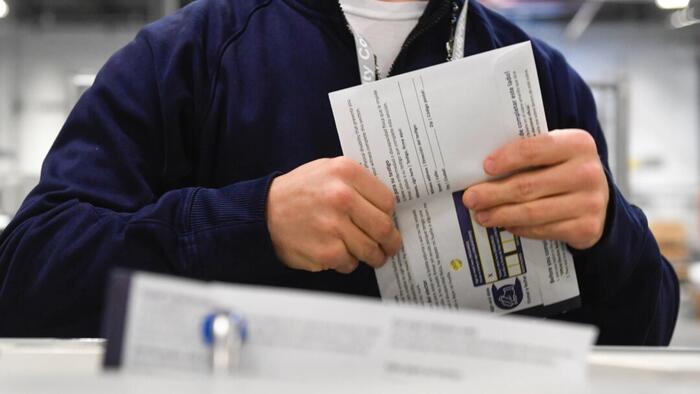On October 30, a Pennsylvania court delivered a significant decision concerning mail-in ballots, ruling that the state’s requirement for voters to date their mail-in ballots in order for them to be counted is unconstitutional. This ruling, a 3-2 decision by the Commonwealth Court, applies specifically to a past special election. A panel of Commonwealth Court judges upheld a previous ruling made by a Philadelphia judge, which mandated that 69 ballots submitted on time but lacking handwritten dates be counted. The majority opinion, penned by Judge Ellen Ceisler, emphasized that the law’s dating requirement does not establish voter eligibility, ensure timely ballot receipt, or prevent fraud—thus rendering it irrelevant.
The ruling is rooted in a broader constitutional context; Judge Ceisler stated that any law governing elections should not infringe upon individuals’ fundamental right to vote. The court clarifies that their decision only pertains to past elections and does not alter the regulations for the upcoming 2024 General Election. However, dissenting opinions voiced concerns that the timing of this ruling could lead to confusion among voters and county election officials as they prepare for the Nov. 5 election. Judge Patricia McCullough cautioned that the court’s determination could create uncertainty regarding voter expectations, while Judge Matthew Wolf expressed concern that the Pennsylvania Supreme Court would not have an adequate opportunity to review this decision before the upcoming election.
The implications of this ruling resonate with advocacy groups and legal experts. Stephen Loney from the American Civil Liberties Union of Pennsylvania emphasized that penalizing voters for minor errors—such as failing to date their ballot envelope—constitutes a violation of the state constitution, which generally favors voter inclusion. Loney highlighted that the disqualification of ballots from eligible voters represents an impermissible infringement on fundamental voting rights. Conversely, the ruling contradicts the stance of the Republican National Committee and the Republican Party of Pennsylvania, who served as intervenors in the case and sought to overturn the earlier ruling that favored counting the ballots.
Following the Commonwealth Court’s decision, the Philadelphia Board of Elections, as the defendant in this case, did not provide immediate comments. The Pennsylvania Department of State had previously acknowledged the lack of purpose for the dating requirement in a social media post. Earlier in the year, the Commonwealth Court had also found the date requirement to be unconstitutional for timely submitted ballots, although the Pennsylvania Supreme Court ultimately vacated that decision. This precedent indicates ongoing disputes surrounding the enforceability and implications of voting regulations in the state.
Legal experts, including Mimi McKenzie from the Public Interest Law Center, have noted that the ruling may not be the final word on the issue, suggesting that the date requirement could be further challenged in the future. McKenzie advised voters to continue to date their ballot envelopes to avoid complications, indicating a potential for further disputes over voting regulations in future elections. Although this ruling is an affirmation of voter rights, it also lays the groundwork for ongoing dialogue regarding mail-in voting procedures and constitutional protections.
In conclusion, the recent ruling in Pennsylvania concerning mail-in ballot dating requirements highlights a significant tension between safeguarding voter participation and ensuring election integrity. While the court’s decision supports the inclusion of ballots from eligible voters, it raises questions about the clarity and continuity of election laws as states navigate the complexities of mail-in voting. This case serves as a reminder of the ongoing challenges and discussions within election law, emphasizing the importance of protecting fundamental voting rights while addressing administrative concerns in the electoral process.

